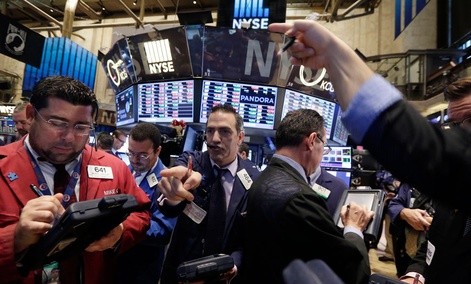How Traders and Risk Managers Are Adapting to the Changing Rules Wall Street & Technology
Post on: 3 Сентябрь, 2015 No Comment

Stephen Davenport, VP and head of equity risk management at Wilmington Trust, discusses in an exclusive Q&A the impact of the economic, political and regulatory climates on the roles of traders and risk managers.
How is the current economic climate affecting the roles of the trader and risk manager?
Stephen Davenport, Wilmington Trust Investment Management
Davenport: Right now the hardest thing about operating is that we’re not using finance accounting or economics anymore it’s all about what central bankers are doing. When you try to evaluate good investments or strategies, you try to believe that there is some kind of steady state that everything is operating in. When you look at the accounting data, you should be able to say, This company is worth this because this is what their book value is. Well, the accounting rules were modified and put on hold, and instead of changing to mark to market, they were allowed to stay the way they were, which is more mark to model. This makes it hard to understand how many banks are in good condition and how many are not.
And then, when you look at economics different stimulus measures, different temporary tax cuts, different things going on in the government make it very muddled and hard to see a trend developing. You can’t tell if the driver is a short-term payroll tax cut, or if it’s a legitimate trend because the underlying housing market is getting better.
In what other ways is the economic environment making it difficult for traders, portfolio managers and investment managers to do their jobs?
Davenport: In terms of finance, everything for the past two or three years has been about keeping rates near zero, and it is creating a distortion in the economy. I mean, can you plan on rates being near zero for the next five years if you’re trying to make an investment for a long period of time? It’s not realistic. So we spend all of our time trying to figure out what’s happening politically.
Meet The New Trader Navigating the complexities of today’s capital markets requires an entirely new set of skills, but many on Wall Street have struggled to adapt. Advanced Trading’s April digital issue breaks down what buy-side traders need to know to survive on the modern trading desk.
How will Dodd-Frank affect your role as a risk manager?
Davenport: This is creating more uncertainty. It looks like Dodd-Frank could be put on permanent hold, and regulators are probably not going to hit their July deadline. My understanding is that they’re thinking if they can postpone it until after the election, and the Republicans end up controlling the House and Senate, it might never get implemented to the degree that it was originally intended. This is why financials are doing so well recently.
When you look at Dodd-Frank, you say, I thought these things were going to start putting our financial house in order. But our financial house is not in great condition.
How do you think this will play out?
Davenport: There are two scenarios: Let’s say the economy gets better, oil weakens, Obama gets reelected and there isn’t really a cleaning out of government. Then we end up with more regulation, and an environment with more regulation could be bad for financials and for economic growth.

The other scenario is that oil prices keep going up because of uncertainly, and there is some kind of an event in Iran, causing our growth here to grind to a halt. You see unemployment start to weaken, Obama loses reelection, and the Republicans take over the House and Senate. In that case we’d see weakness for the next six months dealing with issues of oil, but eventually we’d see less regulation and an environment that is more pro-business.
I’m leaning toward the scenario where Obama gets reelected and we end up in an environment that is more highly regulated.
What trading trends are you noticing lately?
Davenport. I continue to see that ETFs [exchange-traded funds] are becoming deeper and better. I think that the listed options market for main ETFs on the U.S. and international markets are amazingly deep and transparent, and that’s because the OTC market, while it has not gone away, is occupying a lot less of what people do because people like the flexibility of listed options. I continue to be amazed at how ETFs are dominating the trading world and starting to dominate the options world.
How about commissions?
Davenport: Commissions are still under pressure to be lower. Everyone is a value consumer. Clients are looking to make sure they’re getting value: What’s my management fee? What are my commissions? What are you doing for me, and how are you adding value? We just have to continue to prove that we are earning whatever commissions we charge, showing our value versus VWAP, for example.
Clients want us to figure out how to operate in an environment of elevated volatility and central banks reliquifying. It’s very hard to be on the right side of an 11 percent market move in October after everything that happened in September. The Fed says we’re going to keep rates low for a longer period what ends up happening is, if the market turns on a dime and moves up that much, if you were defensively postured, you were overrun.
Stephen Davenport is VP and head of equity risk management at Wilmington Trust Investment Management. the investment management arm of Wilmington Trust Corp. He is responsible for developing risk-managed investment strategies for high-net-worth clients. Davenport has a background in quantitative investment analysis and employs a sophisticated approach to asset allocation and the use of derivatives.














